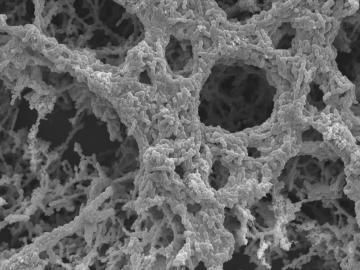AmVac AG Granted a European Patent for ProstaVac
European patent EP 1272216B1 with the title "Vaccine consisting of lactobacilli for the treatment of inflammation of the prostate and benign prostatic hyperplasia" was granted by the European Patent Office on9.6.2010. AmVac AG holds a licence for the above patent.
Granting of the patent is a major success with regard to AmVac's vaccine candidate "ProstaVac". AmVac AG acquired the licence for "ProstaVac" as an immunotherapeutic agent for the treatment of prostatitis and BPH (benign prostatic hyperplasia). These uses are protected in the above EP patent.
Prostatitis is a painful irritative condition of the prostate which is caused by a non-specific inflammation. The pathogens track back up the urethra and can spread in the prostatic ducts. The symptoms that occur range from micturition disorders (problems passing water), urge and pain, to chills and sexual dysfunction. The symptoms can severely impair the quality of life and are often associated with long-term sexual dysfunction.
A variety of preparations are used to treat prostatitis. These include antibiotics or so-called alpha-blockers for chronic prostatitis.
Benign prostate hyperplasia (BPH) is attributable to uncontrolled growth of the prostate in which the prostate presses on the urethra. In the early stages the symptoms are severe impairment of micturition with pain and weak urine stream as well as urinary retention and, in some cases, incontinence.
In all cases the disorder sharply limits the quality of life due to the urgent need to urinate, incontinence, and sexual dysfunction (impotence). These disorders affect large parts of the male population: today, every second 50- to 60-year-old man is affected by the condition. This figure rises to about 90% in the 80-year-olds. Due to demographic developments and the continuing increase in life expectancy, we must expect the number of patients to increase further. It is currently estimated at about 12% a year. Although the causes of the onset of BPH have not been fully clarified, a relationship with infection is suspected.
The advanced stage is treated with medicines (plant-based preparations, alpha-1-receptor blockers or 5-alpha-reductase inhibitors); thereafter, surgery is required.
Most read news
Other news from the department research and development

Get the life science industry in your inbox
By submitting this form you agree that LUMITOS AG will send you the newsletter(s) selected above by email. Your data will not be passed on to third parties. Your data will be stored and processed in accordance with our data protection regulations. LUMITOS may contact you by email for the purpose of advertising or market and opinion surveys. You can revoke your consent at any time without giving reasons to LUMITOS AG, Ernst-Augustin-Str. 2, 12489 Berlin, Germany or by e-mail at revoke@lumitos.com with effect for the future. In addition, each email contains a link to unsubscribe from the corresponding newsletter.

























































